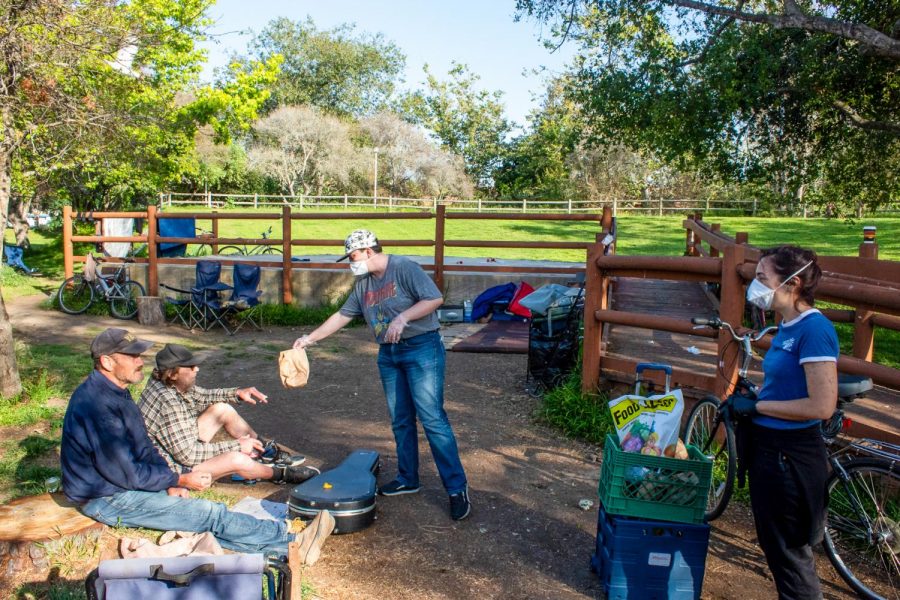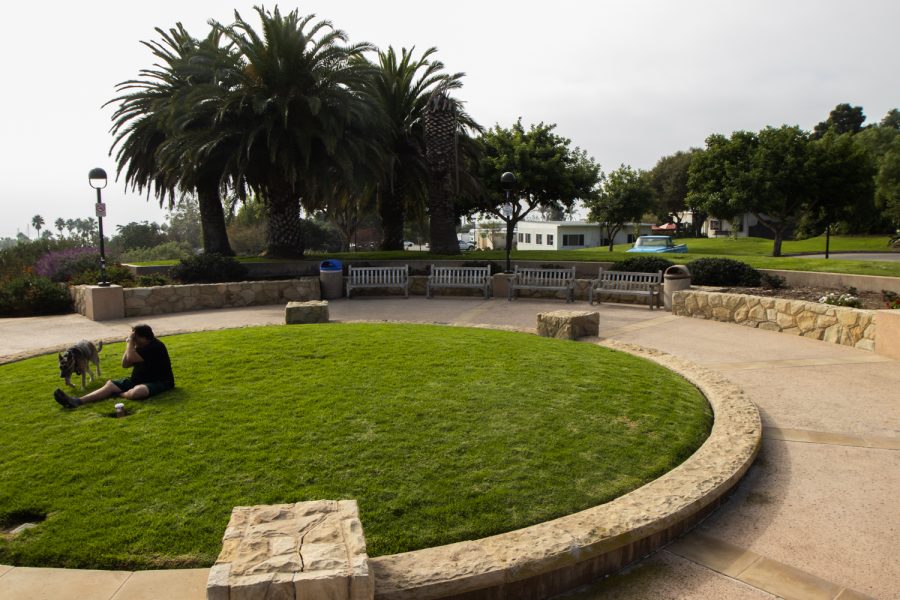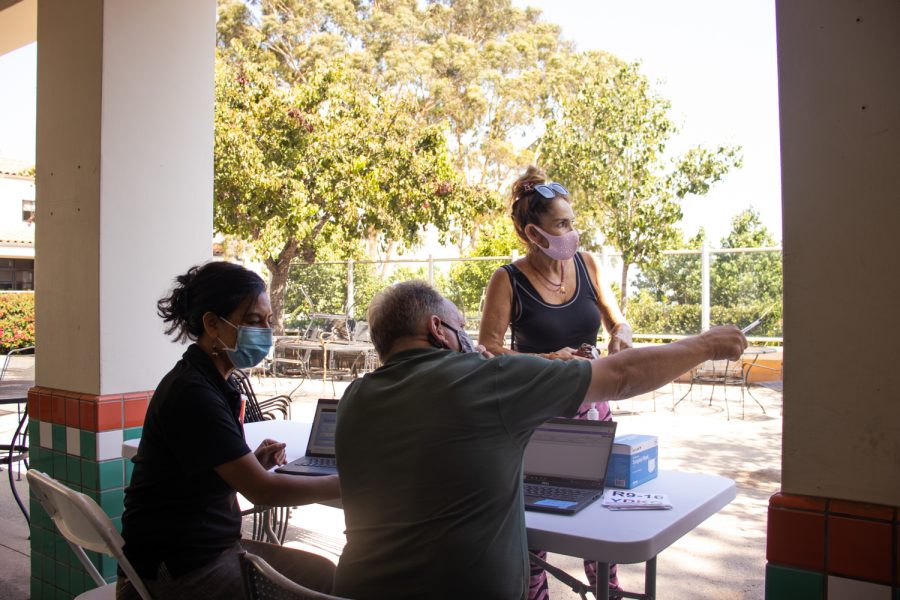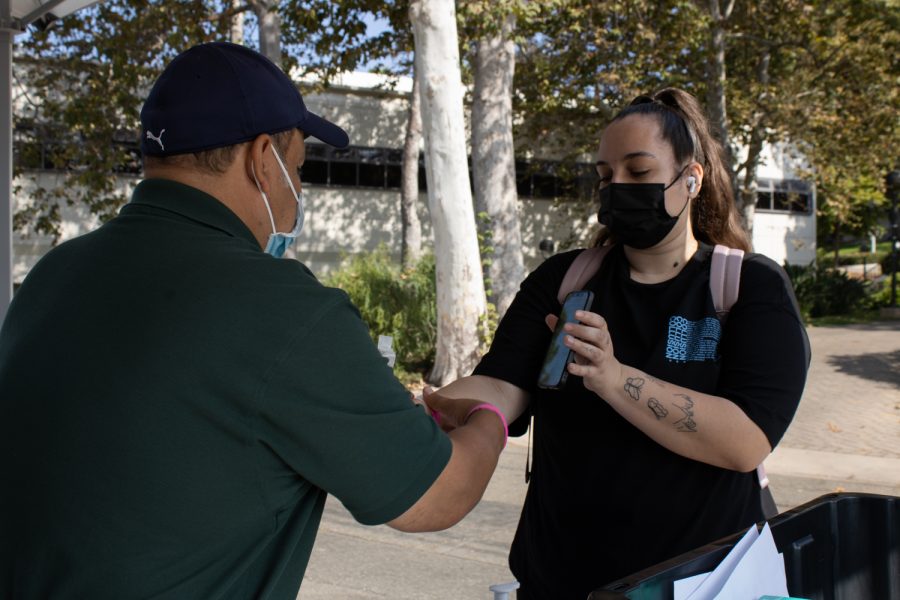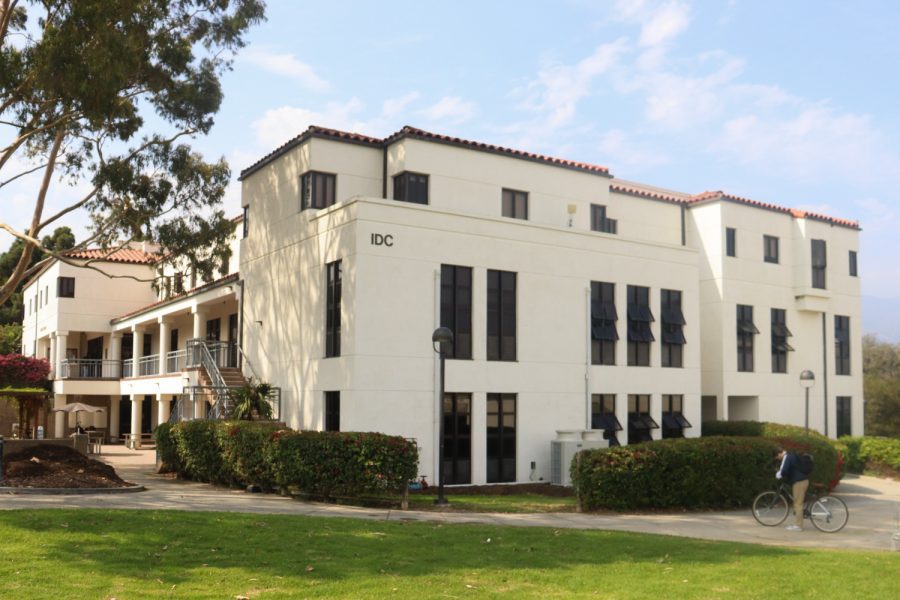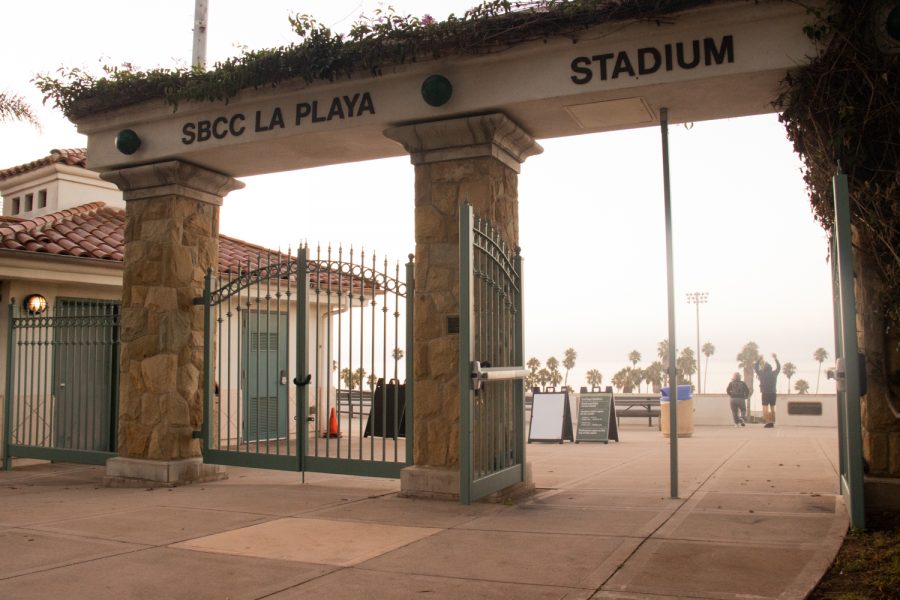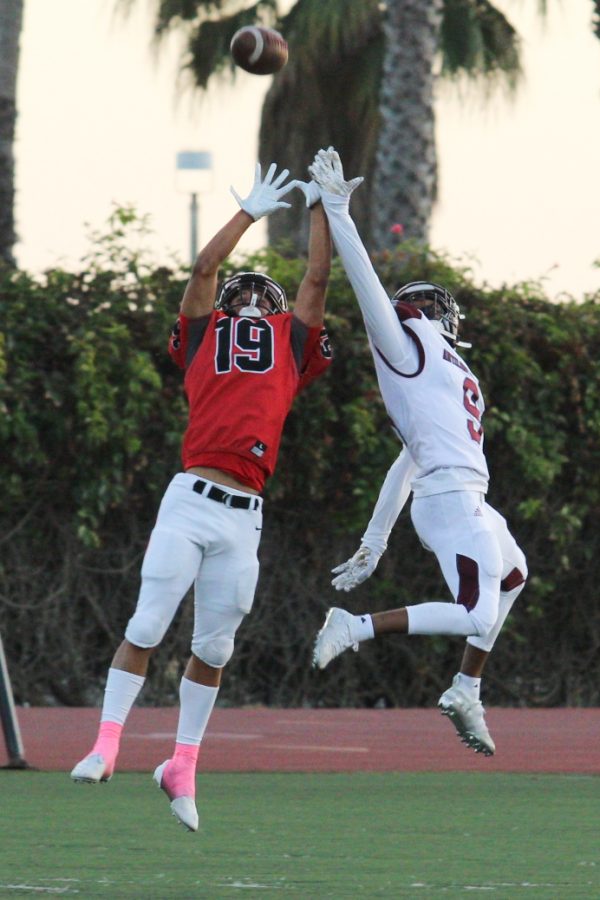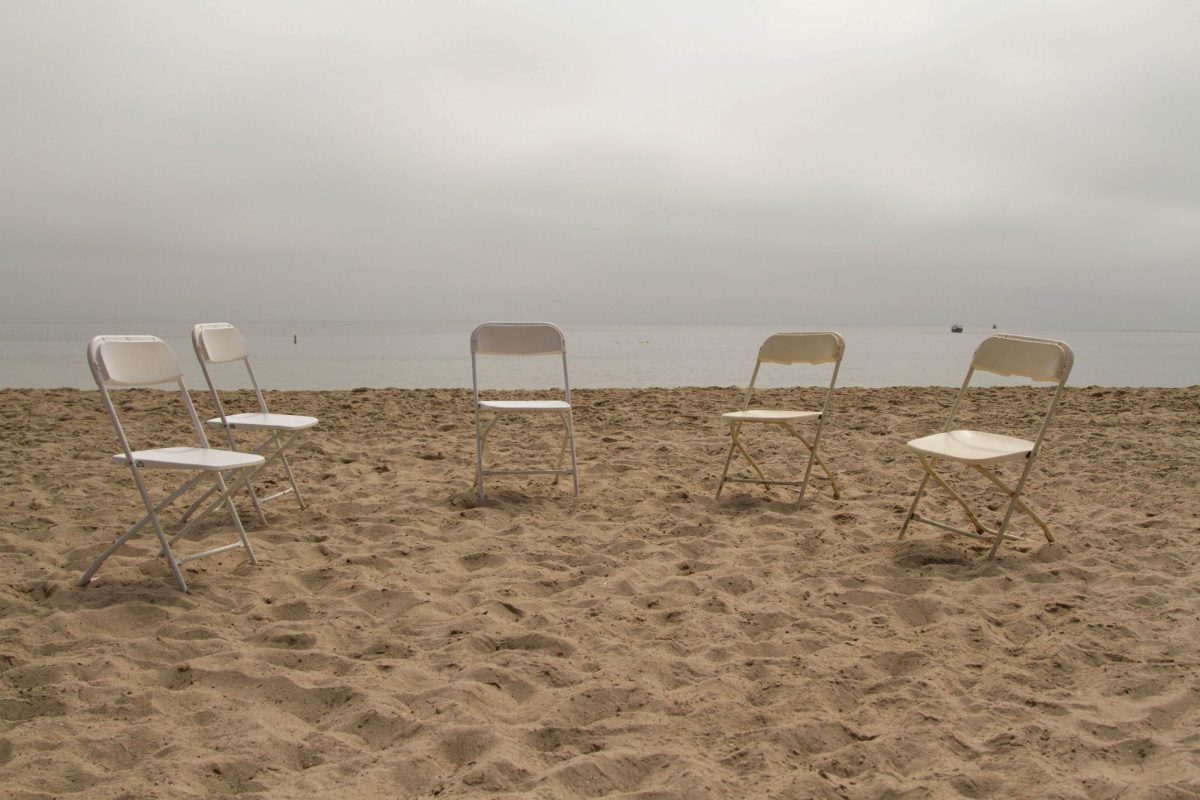Food Not Bombs Isla Vista, an organization that provides free home-cooked vegan meals for the homeless, has continued to distribute food during the coronavirus crisis.
“When systems fail to provide people with essential goods and services…it is up to community members to take action and fill the voids until those systems are repaired or replaced,” said volunteer Jonathan Dickstein.
The Isla Vista chapter of Food Not Bombs is part of a greater mutual aid effort going on in Santa Barbara and across the nation. The coronavirus pandemic has left many without jobs, leading to greater food insecurity.
Pre-pandemic, a group of 3 to 20 volunteers would cook a vegan meal together to distribute to those in need.
The group has now stopped cooking meals in the interest of health and is now seeking donations via PayPal to cover the costs of protein bars, canned soup, Gatorade, fruit, and other packaged food items that they buy at Costco.
“We realized we couldn’t stop serving meals as services to the houseless were generally on the decline,” said Roark.
While wearing N95 masks, gloves, and maintaining social distance, the volunteers distribute around 100 paper bags of food directly to the hands of the homeless in Isla Vista each week.
Taking this approach was not an easy decision. The last time the group got together to cook a meal was March 18th.
“I really miss just hanging out with the other volunteers and people who come eat with us,” volunteer Gina Sawaya said. “It feels like a huge loss to not be able to share meals together.”
Food Not Bombs began as a concept in 1980, and has since expanded as a loose-knit organization with over 500 chapters around the world. The Isla Vista chapter has been steadily active since 2008.
The chapter began by repurposing food collected from dumpsters, but now it receives food donations from farmers at the end of the Sunday farmers’ market, the Isla Vista Food Co-op, and the UCSB food bank.
“Food Not Bombs is partially based on the principle that food is a right and not a privilege, so we will serve anyone, no questions asked, period,” said Dickstein.
Sawaya believes that Food Not Bombs is an essential service and worries that those they typically serve “could die of starvation or dehydration before they would die of coronavirus.”
The small number of volunteers that remain say they don’t need recognition for the work they do.
“People need to eat, and as long as we have volunteers, we will continue to serve food,” Sawaya said.


